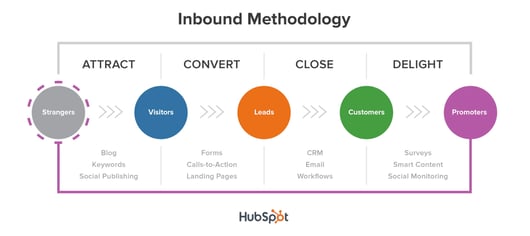The Magical Mysterious World of Growth Hackers
A Growth Hacker is a person whose true north is growth. Everything they do is scrutinized by its potential impact on scalable growth.
MARKETINGPROCESSGROWTHGROWTH HACKING
Bill Arnold
11/11/20236 min read


If you want to start an argument, ask a CEO what the definition is of a Growth Hacker and what they do. A recent article on the Internet had no less than seven different definitions being offered by as many experts. However, we know that Sean Ellis first coined the phrase, so it seems that he should have the right to define its meaning. His simple definition is:
“A growth hacker is a person whose true north is growth. Everything they do is scrutinized by its potential impact on scalable growth. … I’ve met great growth hackers with engineering backgrounds and others with sales backgrounds.
The common characteristic seems to be an ability to take responsibility for growth and an entrepreneurial drive (it’s risky taking that responsibility). The right growth hacker will have a burning desire to connect your target market with your must-have solution. They must have the creativity to figure out unique ways of driving growth in addition to testing/evolving the techniques proven by other companies.”…I used the word “hacker” to mean an attitude of scrappiness rather than being a coder. In other words, a growth hacker ‘hacks’ a way to move the metrics.”
In essence, it is a person who is focused on using established key performance indicators to drive the direction and speed of your marketing program. The science of this approach is defining what metrics to use, and the art is determining how to interpret and apply the knowledge.
Are You Growth Hacker Material?
The key traits of a great Growth Hacker are daring creativity and an understanding of both metrics and marketing. It does not mean a coder or programmer; in fact, the characteristics that it takes to be a good coder are not what it takes to be a great Growth Hacker. Growth Hackers are more than marketers; they may impact the distribution and the product itself to foster overall growth. They need to have a vast range of knowledge and be both visionary and a strategic thinker who is not confined to boundaries.
Andrew Chen believes that a Growth Hacker is the new VP of Marketing. In his world of Silicon Valley startups, this is true. After all, the dynamics of a startup are extremely different from an established company. A startup requires rapid growth for survival. You have no track record of what will compel your customer base to buy and may still even be trying to identify them. The biggest difference is usually resources. Having a cutting-edge program that can be executed with virtually no budget requires all the traits and attributes of a Growth Hacker, for if your metrics are not growing at 20 -30% month-over-month, you may not survive.
Growth Hacking has been primarily associated with startups but has found its way into innovative companies with an established brand and customer base. Established companies are usually content with 10 to 20% growth for the entire year and are more concerned about anything that could potentially damage the brand.
In a more established company, the Growth Hacker will need to be cognizant of the overall brand and must be able to draw the line where it may cause growth but not be in the interest of the overall brand.
Look Behind the Curtain
What is the magic that the Growth Hacker possesses? What is his/her arsenal of tools that can allow your business to duplicate the success?
If you look behind the curtain, you will be disappointed to learn it is not a secret formula or specific tools and techniques, but the mindset of the individual involved. It is a person who can envision all aspects of the product.
Innovation
Because most growth hacks have a very limited lifespan, it is never a fix-and-forget. Every day, the current practices need to be analyzed and challenged. New ideas, no matter how farfetched need to be considered. If someone says they have a growth hacking playbook, walk away. There is no set formula or “proven growth hacking techniques.” Each situation is unique to itself.
Analytics
At the end of the day, analytics will drive the decision-making process for Growth Hackers. It allows them to see what happens when a product feature is eliminated or simply not promoted. Analytics will tell the Growth Hacker what is working and what is not allowing success to be replicated and enhanced.
Picking and choosing what metrics will drive your prospect's behavior is critical to a successful growth hacking program. Typical KPIs that are found in dashboards or scorecards, used by most companies, tend to focus on engagement and reach that are too far down the impact chain. You need to identify the precursor metrics that will, if improved, translate into financial success weeks or months down the road depending on your buying cycle. At the end of the day, the most important metrics are customers, revenue, and profitability. Does the activity improve how much money you are taking into the coffers? To find the right metrics you need to test everything and think outside the box. This is an expedited cycle of testing, review, analysis, implementation, and more testing.
A/B Testing
A/B testing is a scientific optimization technique that uses statistics to increase the odds that your visitors will see the information that will help them understand how your product or services will solve their problems. Incremental improvements in performance can yield significant increases in sales.
A good Growth Hacker does more than A/B testing. It is more of a series of highly educated trials. They need to understand that small successes over time will result in an amazing success story. In some ways, Thomas Edison was the original Growth Hacker. In 1915, he is reported as saying, "I have not failed. I've just found 10,000 ways that won't work." Hopefully, it will not take the Growth Hacker several thousand times to get it right, but you get the idea. Several pundits have stated growth hacking is more of a marathon rather than a sprint. I disagree; it is more like having a sprinter running a marathon. You need to move quickly but be in it for the long haul.
A Growth Hacker is able to take relatively small incremental changes and move quickly to optimize those results while continuing to press for increased performance.
Smart Goals
Growth hacking is the ability to work smarter not harder by leveraging information and data. But for any business, you need to define what success will look like and what incremental goals you will need to achieve. If you do not know the destination or the road markers along the way, you have little hope of reaching it. This is why SMART Goals are so important.
A SMART Goal is one that is Specific, Measurable, Achievable, Results-Focused, and Time-Bound. The Growth Hacker must have a well-defined goal that meets these objectives. For such a program, you first tackle the low-hanging fruit and expand outward. Using the ever-growing history of analytics to make better and more refined decisions.
Focus On Entire Buyers' Journey
Just like a traditional marketer, the Growth Hacker must focus on the entirety of the Buyer’s Journey. If you cannot retain your traffic, there is no point in trying to acquire them. This means having a growth hack for each stage. Just like HubSpot promotes: Attract – Convert – Close – Delight, the Growth Hacker needs to implement a program that addresses each of these areas.


Know Your Buyer Personas
Growth Hackers need to have a deep understanding of their targeted buyer personas. We conduct the most extensive discovery and assessment to identify your ideal customers, their needs, and pain points. By understanding your buyer personas, you can tailor your growth strategies to effectively reach and engage them.
Stay Updated with Industry Trends
Growth hacking is a constantly evolving field. Stay updated with the latest industry trends, tools, and techniques. Attend conferences, read industry blogs, and network with other Growth Hackers to stay ahead of the curve and continuously learn and improve your skills
It Takes a Village (Well, at Least a Team)
At the very early stages, a single Growth Hacker can set up the program and get the low-hanging fruit to engage and convert. However, as the program ramps up, there are a lot of moving parts, and having a single person making all the moves is not practical. You still need the General who will analyze the performance and set the results. For best results, each team member should be a Growth Hacker in their own right but with a specialization in a particular area.
Growth Hackers are a special breed of marketers willing to take risks and push boundaries. They have a vast understanding of all aspects of a business and understand traditional and digital marketing. A Growth Hacker is not born but evolves into someone with the background and courage to put it on the line daily.
To gain further insights into how growth hacking can help your business, contact us below.
Contact:
prevailer@prevail.marketing
(424) 484-9955
